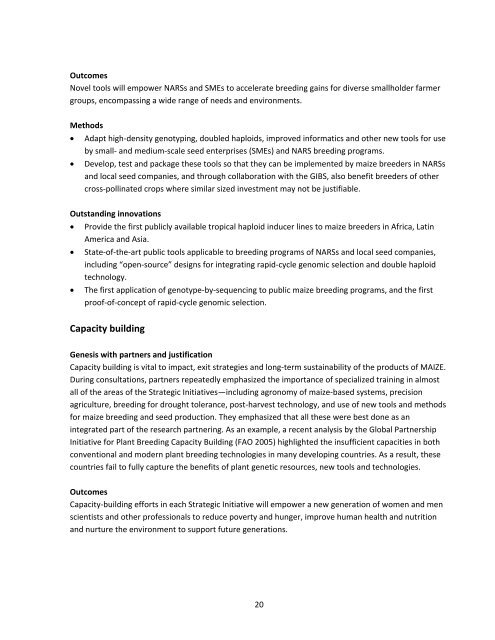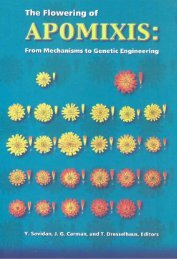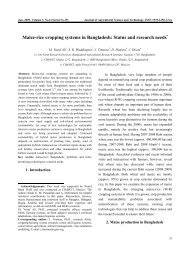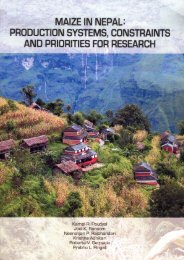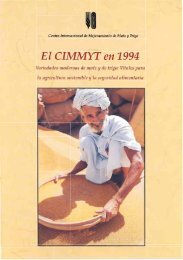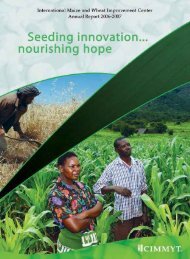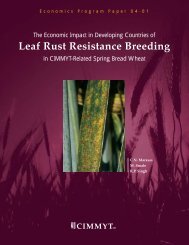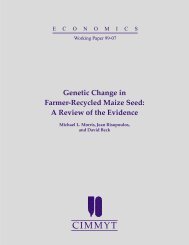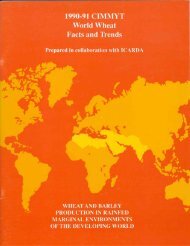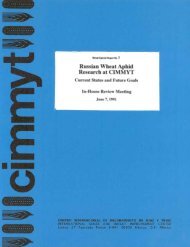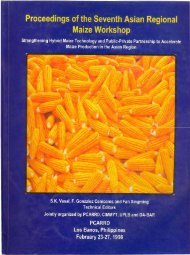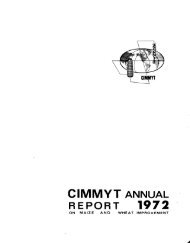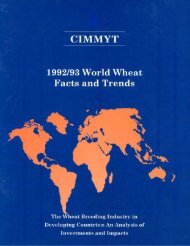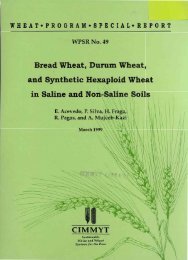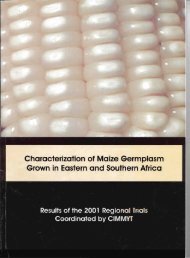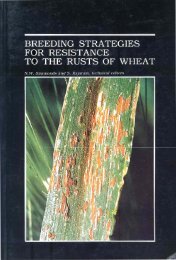Download - Maize
Download - Maize
Download - Maize
You also want an ePaper? Increase the reach of your titles
YUMPU automatically turns print PDFs into web optimized ePapers that Google loves.
Outcomes<br />
Novel tools will empower NARSs and SMEs to accelerate breeding gains for diverse smallholder farmer<br />
groups, encompassing a wide range of needs and environments.<br />
Methods<br />
Adapt high‐density genotyping, doubled haploids, improved informatics and other new tools for use<br />
by small‐ and medium‐scale seed enterprises (SMEs) and NARS breeding programs.<br />
Develop, test and package these tools so that they can be implemented by maize breeders in NARSs<br />
and local seed companies, and through collaboration with the GIBS, also benefit breeders of other<br />
cross‐pollinated crops where similar sized investment may not be justifiable.<br />
Outstanding innovations<br />
Provide the first publicly available tropical haploid inducer lines to maize breeders in Africa, Latin<br />
America and Asia.<br />
State‐of‐the‐art public tools applicable to breeding programs of NARSs and local seed companies,<br />
including “open‐source” designs for integrating rapid‐cycle genomic selection and double haploid<br />
technology.<br />
<br />
The first application of genotype‐by‐sequencing to public maize breeding programs, and the first<br />
proof‐of‐concept of rapid‐cycle genomic selection.<br />
Capacity building<br />
Genesis with partners and justification<br />
Capacity building is vital to impact, exit strategies and long‐term sustainability of the products of MAIZE.<br />
During consultations, partners repeatedly emphasized the importance of specialized training in almost<br />
all of the areas of the Strategic Initiatives—including agronomy of maize‐based systems, precision<br />
agriculture, breeding for drought tolerance, post‐harvest technology, and use of new tools and methods<br />
for maize breeding and seed production. They emphasized that all these were best done as an<br />
integrated part of the research partnering. As an example, a recent analysis by the Global Partnership<br />
Initiative for Plant Breeding Capacity Building (FAO 2005) highlighted the insufficient capacities in both<br />
conventional and modern plant breeding technologies in many developing countries. As a result, these<br />
countries fail to fully capture the benefits of plant genetic resources, new tools and technologies.<br />
Outcomes<br />
Capacity‐building efforts in each Strategic Initiative will empower a new generation of women and men<br />
scientists and other professionals to reduce poverty and hunger, improve human health and nutrition<br />
and nurture the environment to support future generations.<br />
20


